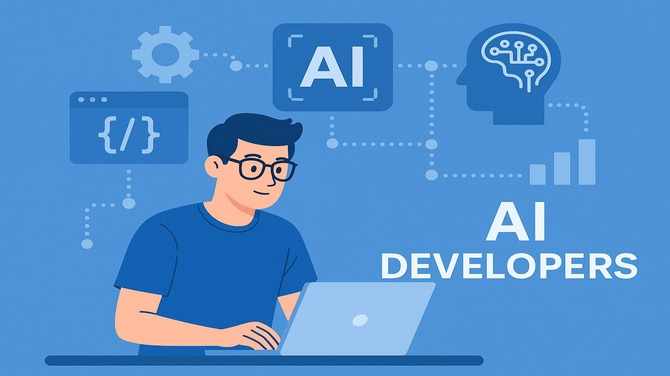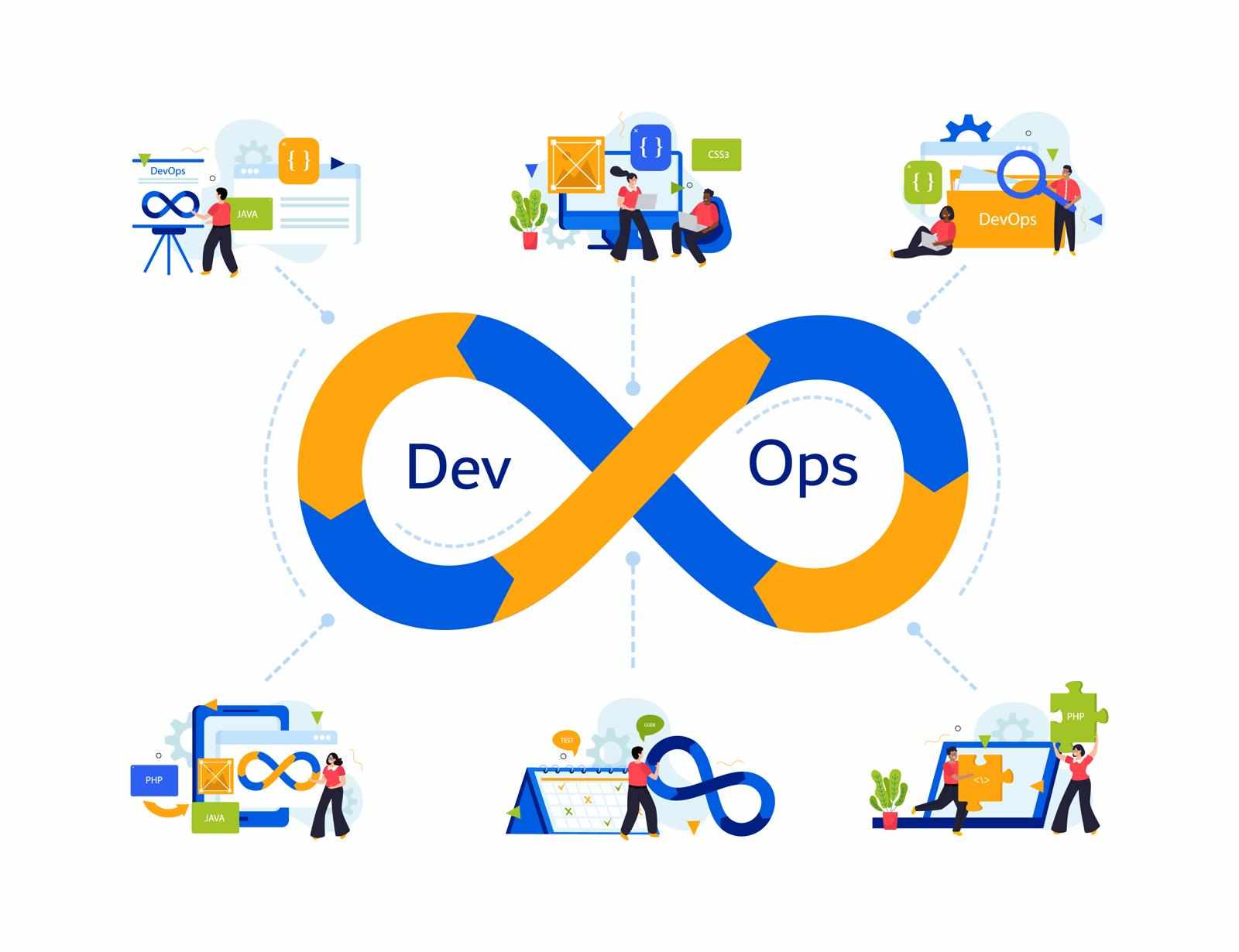
The financial services industry stands at a crossroads. Traditional banking methods are giving way to intelligent systems that can process millions of transactions, detect fraud in real-time, and provide personalized investment advice. This transformation isn't happening by accident – it's being driven by companies that made the smart decision to hire AI developers early in the game.
Financial institutions that embrace artificial intelligence are seeing remarkable results. JPMorgan Chase saved over $150 million annually through their AI-powered contract analysis system. Goldman Sachs reduced trade settlement times from days to minutes using machine learning algorithms. These success stories highlight why smart financial leaders are racing to hire AI developers before their competitors do.
Why Financial Companies Need AI Development Talent
The numbers tell a compelling story about AI adoption in finance. According to recent industry reports, 85% of financial institutions plan to increase their AI investments by 2025. This surge in demand has created an urgent need for skilled professionals who can build, implement, and maintain AI systems.
When you hire AI developers with financial expertise, you're not just adding technical skills to your team. You're investing in professionals who understand both the complexities of financial markets and the nuances of artificial intelligence. These specialists can bridge the gap between business requirements and technical solutions.
Machine learning engineers in finance work on diverse projects ranging from algorithmic trading systems to customer service chatbots. Their expertise helps companies process vast amounts of financial data, identify patterns that humans might miss, and make decisions at speeds impossible for traditional analysis methods.
Core AI Technologies Transforming Finance
Modern financial AI systems rely on several key technologies. Natural language processing helps banks analyze customer feedback and regulatory documents. Computer vision technology enables check processing and document verification. Deep learning algorithms power sophisticated fraud detection systems that adapt to new threats automatically.
Predictive analytics has become especially valuable for risk management. AI systems can analyze market conditions, customer behavior, and economic indicators to forecast potential risks before they impact the business. This proactive approach helps financial institutions make better decisions and protect their assets.
Machine Learning Engineers: The Backbone of Fintech Innovation
Machine learning engineers represent the most sought-after professionals in financial AI development. These experts design algorithms that can learn from data patterns and improve their performance over time. Unlike traditional programmers, they combine statistical knowledge with programming skills to create systems that evolve and adapt.
The role of machine learning engineers in finance extends beyond simple automation. They develop recommendation engines that suggest investment opportunities to clients. They build credit scoring models that assess loan applications more accurately than traditional methods. They create trading algorithms that can execute thousands of transactions per second based on market conditions.
Financial companies that hire AI developers with machine learning expertise gain significant competitive advantages. These professionals can identify inefficiencies in existing processes and design AI solutions that streamline operations while reducing costs.
Essential Skills for Financial AI Development
Successful AI developers in finance possess a unique combination of technical and domain knowledge. They understand programming languages like Python, R, and SQL. They're familiar with machine learning frameworks such as TensorFlow and PyTorch. Most importantly, they comprehend financial regulations, market dynamics, and risk management principles.
Data science skills are equally crucial. Financial AI systems process enormous datasets containing transaction records, market prices, and customer information. Developers must know how to clean, analyze, and extract insights from this data while maintaining security and compliance standards.
Deep Learning Applications in Modern Banking
Deep learning represents the cutting edge of AI technology in finance. These advanced neural networks can process complex patterns in data that traditional algorithms cannot detect. Banks use deep learning for fraud detection, where systems analyze transaction patterns to identify suspicious activity in real-time.
Investment firms leverage deep learning for portfolio management and risk assessment. These systems can analyze market sentiment from news articles, social media posts, and financial reports to make investment recommendations. The technology's ability to process unstructured data gives financial institutions new insights into market trends and customer behavior.
When financial companies hire AI developers specialized in deep learning, they gain access to these advanced capabilities. These professionals can build sophisticated models that continuously learn from new data and improve their accuracy over time.
Real-World Deep Learning Success Stories
Several major financial institutions have achieved remarkable results with deep learning implementations. Bank of America's virtual assistant Erica uses deep learning to understand customer queries and provide personalized financial advice. The system handles millions of interactions monthly, reducing customer service costs while improving satisfaction ratings.
Credit card companies use deep learning algorithms to detect fraudulent transactions with over 99% accuracy. These systems analyze hundreds of variables in milliseconds, flagging suspicious activities before they can cause damage. This level of protection would be impossible without AI-powered solutions.
The Strategic Advantage of AI Talent Acquisition
Companies that successfully hire AI developers early in their digital transformation journey maintain significant advantages over competitors. These professionals help organizations build robust AI infrastructures that can scale with business growth. They establish best practices for data management, model deployment, and system maintenance.
Early AI adoption also provides valuable learning opportunities. Development teams gain experience working with financial data and understanding regulatory requirements. This knowledge becomes increasingly valuable as AI technologies evolve and new applications emerge in the financial sector.
The talent acquisition strategy should focus on finding developers who combine technical expertise with financial industry knowledge. These professionals understand the unique challenges of working with sensitive financial data and can design systems that meet strict compliance requirements.
Building High-Performance AI Development Teams
Successful AI implementation requires diverse skill sets within development teams. Data scientists identify patterns and opportunities in financial datasets. Machine learning engineers build and optimize AI models. Software engineers integrate AI systems with existing financial applications and infrastructure.
Team collaboration becomes crucial when working on complex financial AI projects. Developers must communicate effectively with business stakeholders, compliance officers, and risk management teams. This interdisciplinary approach ensures that AI solutions meet both technical and business requirements.
Overcoming Challenges in AI Developer Recruitment
The competition for AI talent in finance is intense. Top developers receive multiple job offers and command premium salaries. Financial institutions must differentiate themselves by offering compelling projects, competitive compensation packages, and opportunities for professional growth.
Remote work capabilities have become essential for attracting top talent. Many skilled AI developers prefer flexible work arrangements that allow them to balance personal and professional commitments. Companies that embrace remote collaboration tools and distributed team management gain access to a broader talent pool.
Training and development programs help organizations grow their AI capabilities internally. Investing in existing employees' AI education creates loyalty while building institutional knowledge. This approach complements external hiring efforts and ensures long-term success in AI implementation.
Creating Attractive AI Career Opportunities
Financial institutions that hire AI developers successfully focus on creating attractive career paths. They offer opportunities to work on cutting-edge projects that have real business impact. They provide access to advanced computing resources and datasets that enable innovative research and development.
Professional development opportunities include conference attendance, certification programs, and collaboration with academic institutions. These benefits help developers stay current with rapidly evolving AI technologies while contributing to the company's competitive advantage.
Future Trends in Financial AI Development
The demand for AI developers in finance will continue growing as new applications emerge. Regulatory technology (RegTech) uses AI to automate compliance monitoring and reporting. Robo-advisors provide personalized investment advice to retail customers. Blockchain integration with AI creates new opportunities for secure, automated financial transactions.
Quantum computing represents the next frontier in financial AI development. This technology could revolutionize risk modeling, portfolio optimization, and cryptographic security. Financial institutions that hire AI developers with quantum computing knowledge will be positioned to capitalize on these emerging opportunities.
Ethical AI development is becoming increasingly important in finance. Developers must ensure that AI systems make fair, unbiased decisions that comply with regulatory requirements. This focus on responsible AI creates new specialization areas within financial technology development.
The integration of AI with other emerging technologies like Internet of Things (IoT) and 5G networks will create new possibilities for financial services. Real-time data processing from multiple sources will enable more sophisticated risk management and customer service applications.
Financial institutions that invest in AI talent today are building the foundation for tomorrow's competitive advantages. The companies that hire AI developers strategically will lead the industry's transformation toward more efficient, secure, and customer-focused financial services.




















Write a comment ...